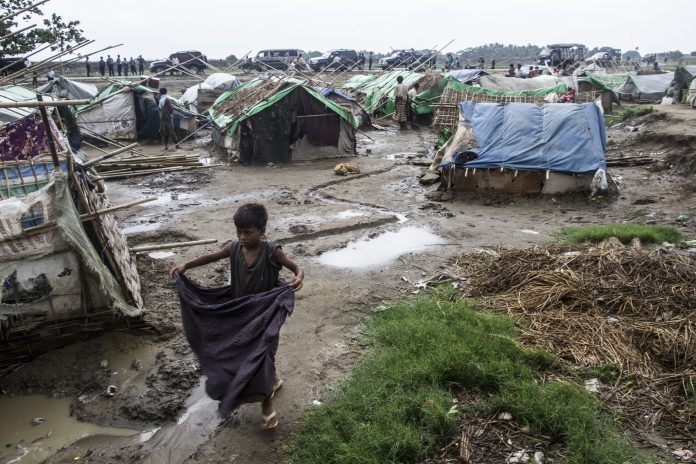A high-level mission of the European Commission and the European External Action Service (EEAS) returned last week (18-22 February 2019) to Myanmar as part of a broader engagement under the EU’s Everything But Arms (EBA) trade preferences scheme.
A previous monitoring mission from the European Commission and the European External Action Service visited Myanmar from 28 to 31 October 2018, following deeply worrying developments highlighted in various United Nations reports, in particular as regards human rights violations in Rakhine, Kachin and Shan States and concerns about labour rights.
This EU mission focused on several issues such as: accountability for crimes under international law; cooperation with United Nations special procedures and mandates; unrestricted humanitarian access to conflict-affected communities; situation of Internally Displaced Persons (IDPs) and conditions for safe, voluntary, dignified and sustainable return of refugees; discrimination, hate speech, media freedom and labour rights.
The mission held constructive discussions with the government of Myanmar in Nay Pyi Taw, through an inter-ministerial working session led by the Ministry of Foreign Affairs, and several bilateral meetings including with the Minister of International Cooperation and the Minister of Information. The mission visited Rakhine State, and met with the Chief Minister and State Government, and the Speaker of the Rakhine State Assembly. It also visited a Rohingya IDP camp and met with local Rakhine and Hindu communities.
The mission provided an opportunity for discussions with representatives of United Nations agencies including United National High Commissioner for Refugees, United Nations Development Programme and the International Labour Organisation, as well as with humanitarian organisations. Moreover, the EU delegation met with the Myanmar Press Council, civil society, labour rights activists, trade unions and business organisations.
The European Commission and the European External Action Service will now analyse the findings from the mission. The EU will continue to engage with Myanmar and looks forward to seeing sustained and concrete progress in all areas of concern in the near future.
Myanmar benefits from its preferential access to the EU market
Myanmar benefits significantly from its preferential access to the EU market under the EBA. Its duty free exports increased from €535 million in 2015 to an expected €2.3 billion in 2018. Main exports (2018 estimates) to the EU are textiles (over € 1.7 billion), rice (over €140 million), precious stones (€130 million) and footwear (€120 million).
To continue to benefit from the duty-free, quota-free access to the EU market under the EBA trade preferences scheme, Myanmar must uphold and respect the fundamental principles enshrined in the relevant 15 fundamental United Nations and International Labour Organisation conventions. In case of evidence of serious and systematic violations of human rights, the beneficiary country can have its trade preferences withdrawn temporarily.
The EU has stepped up its engagement with Myanmar (see the EU biennial GSP report of January 2018) in response to serious concerns about the deterioration of respect for human rights and the rule of law.
The EU has put in place since June 2018 targeted restricted measures against senior officers of Myanmar security forces involved in serious and systematic human rights abuses in Rakhine, Kachin and Shan States.
The latest Foreign Affairs Council Conclusions adopted in December 2018 reiterated concerns about the situation in the country and invited Myanmar authorities to cooperate with the European Commission in the framework of the Everything But Arms (EBA) scheme.

